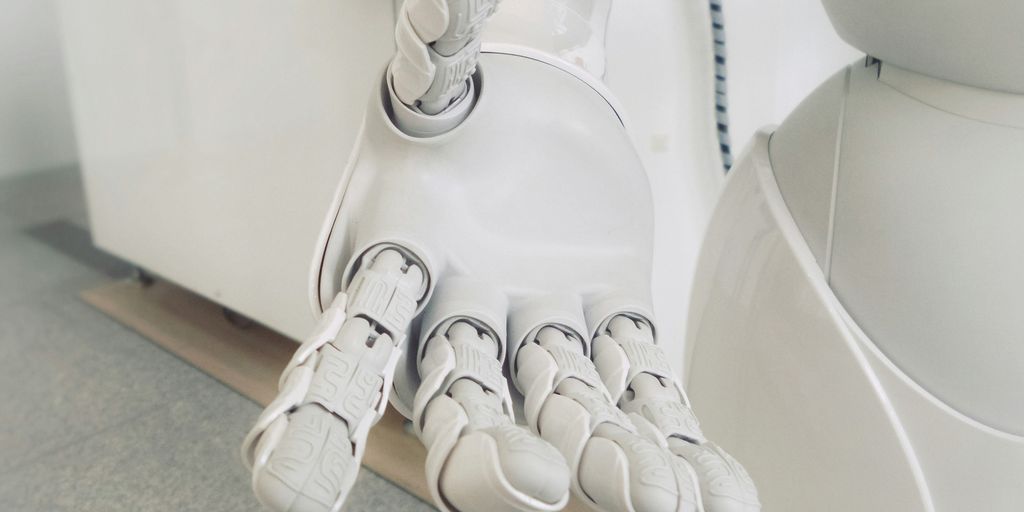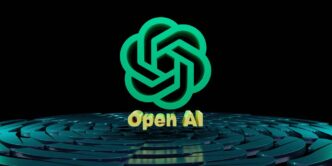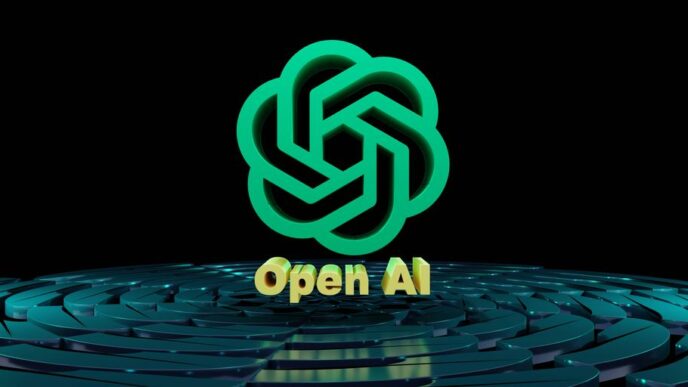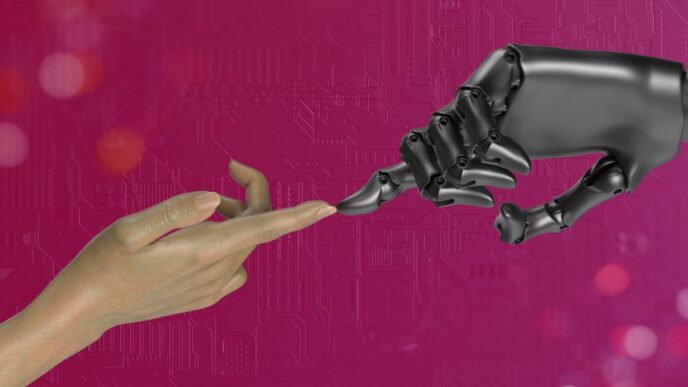Big language models, or LLMs, are changing a lot of things, and medicine is definitely one of them. These smart computer programs are starting to make a real difference in how doctors work, how patients get help, and even how new medical discoveries happen. It’s pretty exciting to think about all the ways healthcare LLMs are helping to make healthcare better for everyone.
Key Takeaways
- Healthcare LLMs are making medical tasks easier and more accurate.
- They help patients get more personal care and feel happier with their medical visits.
- These LLMs are speeding up medical research by handling lots of different health information.
- There are still some big hurdles to clear, like making sure healthcare LLMs are safe and follow the rules.
- The future looks bright for healthcare LLMs, with lots of improvements and wider use coming soon.
Transforming Medical Workflows With Healthcare LLMs
Healthcare LLMs are changing how things get done in medicine. It’s not just about making things faster; it’s about making them better. I’ve been following this stuff for a while, and it’s pretty wild to see the changes happening.
Automating Routine Processes
LLMs are really good at taking over the boring, repetitive tasks that doctors and nurses hate. Think about scheduling appointments, filling out paperwork, or even generating basic reports. These things take up a ton of time, and LLMs can do them way faster. This frees up medical staff to focus on patients, which is what they should be doing anyway. It’s like having a super-efficient assistant who never gets tired. For example, healthcare LLMs can automate appointment scheduling, freeing up staff for patient care.
Enhancing Diagnostic Accuracy
This is where things get really interesting. LLMs can analyze huge amounts of medical data – like electronic health records and imaging results – to help doctors make better diagnoses. They can spot patterns that humans might miss, leading to earlier and more accurate diagnoses. Of course, it’s not about replacing doctors, but giving them a powerful tool to improve their decision-making. It’s like having a second opinion from a super-smart computer.
Optimizing Digital Health Care Workflows
Digital healthcare is a mess of different systems and processes. LLMs can help tie everything together, making it easier for doctors and patients to navigate. They can streamline communication, automate tasks, and even personalize treatment plans. It’s about making the whole system more efficient and user-friendly. The potential of LLMs to optimize digital health care workflows is undeniable.
Improving Patient Engagement Through Healthcare LLMs

Healthcare LLMs are really changing how patients interact with the medical world. It’s not just about getting information; it’s about making the whole experience better and more personal. Think about it: getting advice tailored just for you, having easier chats with your doctor, and feeling more satisfied with your care. That’s the promise of LLMs.
Personalized Medical Advice
Imagine getting health advice that actually understands you. LLMs can analyze your medical history, lifestyle, and even your preferences to give you advice that’s specific to you. No more generic tips that don’t really apply. This level of personalization can make a huge difference in how well you follow your treatment plan and how motivated you are to take care of yourself. It’s like having a health coach who knows you inside and out. For example, if you’re managing diabetes, an LLM could suggest recipes that fit your dietary needs and even remind you to check your blood sugar. It’s all about making healthcare fit into your life, not the other way around. LLMs can offer medical consultations and handle document processing efficiently.
Streamlining Patient Consultations
Let’s be honest, talking to a doctor can be stressful. You’re trying to remember all your symptoms, explain how you’re feeling, and understand complicated medical terms. LLMs can help bridge that gap. They can prepare you for your appointment by helping you organize your thoughts and questions. During the consultation, they can take notes and even translate medical jargon into plain language. And after the appointment, they can summarize the key points and remind you of your next steps. It’s like having a personal assistant for your healthcare. LLMs can better comprehend patients’ needs and concerns, offering more [personalized medical advice](#a386].
Boosting Patient Satisfaction
Ultimately, all these improvements add up to happier patients. When you feel like you’re being heard, understood, and supported, you’re more likely to be satisfied with your care. LLMs can play a big role in creating that feeling. They can provide emotional support, answer your questions promptly, and make you feel like you’re an active participant in your own healthcare journey. It’s about creating a more human and compassionate experience, even when technology is involved. LLMs outputs transcend mere data; they become imbued with empathy and human care, enhancing the patient’s treatment experience and fostering stronger trust and communication between doctors and patients.
Advancing Medical Research With Healthcare LLMs

Processing Diverse Medical Data
Okay, so picture this: medical research generates tons of data. We’re talking about patient records, research papers, clinical trial results, genomic data… it’s a huge mess. Healthcare LLMs are really good at sorting through all of that. They can take information from different sources and put it together in a way that makes sense. This helps researchers find patterns and connections that they might have missed otherwise. It’s like having a super-powered research assistant that never gets tired.
Enabling Personalized Treatments
One of the coolest things about LLMs is how they can help with personalized medicine. Instead of giving everyone the same treatment, doctors can use LLMs to figure out what will work best for each individual patient. The LLMs can analyze a patient’s genetic information, medical history, and lifestyle to predict how they will respond to different treatments. This could lead to more effective treatments and fewer side effects. It’s not perfect, but it’s a big step in the right direction. LLMs can improve patient education with accurate, readable, and empathetic responses.
Supporting Evidence-Based Medicine
Evidence-based medicine is all about making decisions based on the best available evidence. LLMs can help with this by quickly searching through medical literature and finding relevant studies. They can also help researchers analyze the results of clinical trials and identify the most effective treatments. This means doctors can make better decisions about patient care, and patients can be confident that they are getting the best possible treatment. It’s about using data to make smarter choices, and LLMs are a key part of that process.
Challenges and Considerations for Healthcare LLMs
Healthcare LLMs are pretty cool, but it’s not all sunshine and roses. There are definitely some big hurdles we need to jump over before we can fully trust these things in a medical setting. It’s not just about the tech being fancy; it’s about making sure it’s safe, reliable, and actually helps people.
Ensuring Safety and Effectiveness
Okay, so the biggest worry? Making sure these LLMs don’t mess up. We’re talking about people’s health here, not just some random data point. The safety and effectiveness of healthcare LLMs are paramount. If an LLM gives the wrong advice or misdiagnoses something, the consequences could be serious. We need rigorous testing and validation to make sure they’re up to the task. Think about it: a doctor spends years learning and gaining experience. Can we really expect an AI to replace that overnight? Probably not. We need to be super careful about potential misrepresentation of results.
Addressing Regulatory Frameworks
Right now, the rules around using LLMs in healthcare are kind of a mess. It’s like the Wild West out there. We need clear guidelines and regulations to make sure everyone’s on the same page. Who’s responsible if an LLM makes a mistake? How do we protect patient data? These are tough questions, and we need answers before LLMs become widespread. It’s not just about following the law; it’s about building trust with patients and healthcare providers. The current regulation of LLMs is still in its early stages, with several frameworks being developed to address the unique risks and challenges they pose. We need to figure out how to handle data-driven recommendations.
Navigating Complex Medical Scenarios
Medicine is complicated. Really complicated. It’s not just about memorizing facts; it’s about understanding the nuances of each patient’s situation. LLMs are good at processing data, but can they really grasp the complexities of a human being? What happens when a patient has multiple conditions or a rare disease? Can the LLM handle it? These are the kinds of scenarios that keep doctors up at night, and we need to make sure LLMs are up to the challenge. LLMs might exceed the training scope, potentially leading to misunderstandings in complex medical scenarios. The scarcity of evidence-based medical research concerning the application of LLMs in healthcare settings is a significant challenge. We need to proceed with a cautious approach to the introduction of LLMs in primary healthcare.
The Future Landscape of Healthcare LLMs
Okay, so what’s next for healthcare LLMs? It feels like we’re just scratching the surface. I mean, they’re already doing some cool stuff, but the potential is huge. It’s not just about making things a little better; it’s about completely changing how healthcare works. Let’s look at some areas where I think we’ll see some big changes.
Continuous Technological Refinement
LLMs aren’t going to stay the same, that’s for sure. We’re going to see them get smarter, faster, and more accurate. Think about it: better algorithms, bigger datasets, and maybe even entirely new approaches to how these things are built. It’s like the difference between your old flip phone and the latest smartphone. The improvements will be constant, and they’ll add up to something pretty amazing. For example, statistical analysis will become more efficient.
Broad Adoption Across Healthcare Sectors
Right now, LLMs are mostly being used in specific areas, like helping with diagnoses or automating paperwork. But I think we’ll see them pop up everywhere. From hospitals to clinics to even your doctor’s office, LLMs could be helping out in all sorts of ways. Imagine:
- LLMs helping nurses manage patient care.
- LLMs assisting pharmacists with prescriptions.
- LLMs providing support in mental health settings.
It’s not about replacing people, but about giving them tools to do their jobs better.
Catalyzing Societal Health Improvements
This is where it gets really exciting. If LLMs can make healthcare more efficient and accessible, that could have a huge impact on society as a whole. Think about it: fewer medical errors, faster diagnoses, and more personalized treatments. That could lead to people living longer, healthier lives. Plus, if LLMs can help us optimize digital health care workflows, that could free up resources to tackle some of the bigger health challenges we face as a society. It’s a long game, but the potential payoff is enormous.
Decision Support and Efficiency Gains From Healthcare LLMs
Healthcare LLMs are making a real difference in how doctors and hospitals operate. It’s not just about fancy tech; it’s about making things run smoother and helping doctors make better calls. I think it’s pretty cool how these things are changing the game.
Data-Driven Recommendations
LLMs can sift through tons of medical data – way more than any human could handle in a reasonable time. This means they can spot patterns and offer recommendations that might not be obvious at first glance. It’s like having a super-smart assistant who’s always on the lookout. For example, they can analyze patient history, lab results, and even the latest research to suggest the best course of action. This is especially useful in complex cases where there are many factors to consider. It’s not about replacing doctors, but giving them extra insights to work with. The use of AI in legal tech is similar, but in a different field.
Enhancing Clinical Decision Making
LLMs are helping doctors make smarter choices, faster. They can quickly pull up relevant information, summarize research papers, and even flag potential risks or interactions. This can be a huge time-saver, especially when dealing with a busy schedule. It also helps reduce the chance of errors, which is always a good thing. Think of it as a second opinion that’s always available. It’s not about blindly following what the LLM says, but using it as a tool to inform and improve decision-making.
Improving Overall Quality of Care
By automating tasks, providing data-driven insights, and helping doctors make better decisions, LLMs are contributing to a higher standard of care. This can lead to better outcomes for patients, reduced costs for hospitals, and a more efficient healthcare system overall. It’s a win-win situation. Here are some specific ways LLMs are improving care:
- Reducing wait times for appointments
- Improving accuracy of diagnoses
- Personalizing treatment plans
- Streamlining administrative tasks
LLMs can also help improve communication between doctors and patients, leading to better understanding and trust. It’s all about using technology to make healthcare more accessible, affordable, and effective. The potential of digital health care is undeniable.
Conclusion
So, what’s the big takeaway here? Well, it’s pretty clear that LLMs are changing medicine in a big way. We’re talking about a whole new era for healthcare, where these tools can help with everything from quick triage in emergencies to making sure older folks get the care they need. They’re even making digital medical stuff work better. As we get more and more kinds of medical data, these LLMs will get even smarter, helping doctors figure out exactly what’s going on and how to treat it for each person. Of course, we still need to make sure they’re safe and actually work well in real hospital settings. The rules for these things are still being figured out, which is a big deal. But even with those challenges, the good things LLMs can bring to healthcare are huge. They can make things faster, help doctors make better choices, and even improve how doctors and patients talk to each other. It’s a pretty exciting time, and if we keep working at it, LLMs could really make healthcare better for everyone.
Frequently Asked Questions
What are LLMs and how do they help in healthcare?
LLMs are like smart computer programs that can understand and create human language. In healthcare, they help doctors and nurses by doing tasks like organizing patient information, helping with diagnoses, and even giving personalized health advice.
How do LLMs make healthcare better?
LLMs can make healthcare faster and more accurate. They can automate daily tasks, help doctors make better decisions by giving them lots of information, and even make it easier for patients to get the right care.
Can LLMs help patients directly?
Yes, LLMs can help patients directly! They can provide personalized health tips, answer common medical questions, and make it simpler for patients to talk to their doctors. This can make patients happier with their care.
What are some challenges with using LLMs in healthcare?
A big challenge is making sure LLMs are safe and work correctly, especially since they deal with people’s health. We also need clear rules and laws for how these technologies are used in medicine.
What does the future hold for LLMs in medicine?
LLMs are expected to keep getting better and be used in more parts of healthcare. They will likely help doctors make even smarter choices, leading to better health for everyone.
How do LLMs support doctors in making decisions?
LLMs help doctors by giving them quick, data-based suggestions. This helps doctors make more informed decisions and improves the overall quality of care patients receive.














